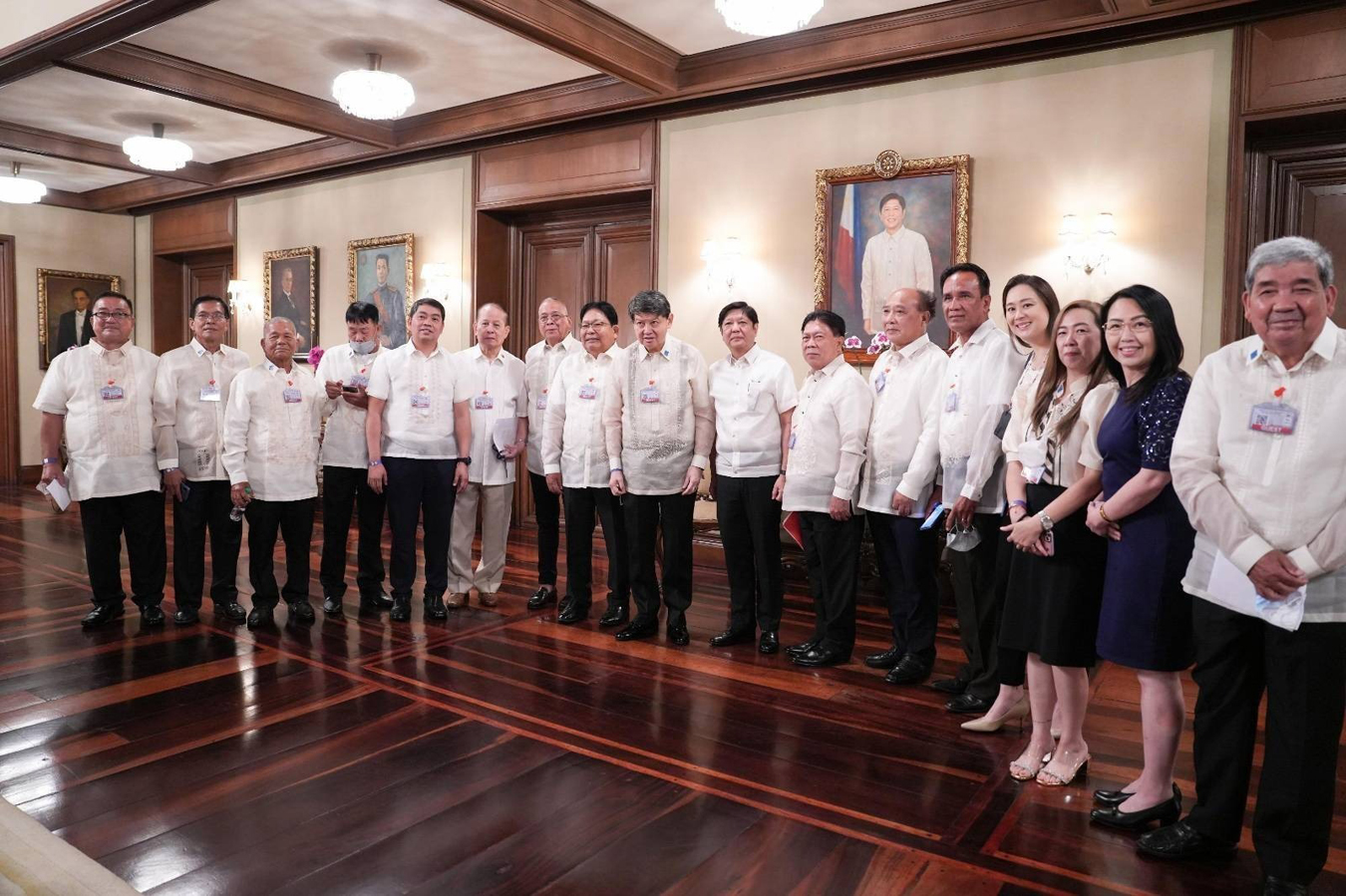
President Ferdinand R. Marcos Jr. on Tuesday agreed to adopt hybrid rice as a better alternative to the inbred variety for increased crop production.
This, after the President met with SL Agritech Corporation (SLAC), represented by its chairman and chief executive officer (CEO) Henry Lim Bon Liong, and farmers from Central Luzon to address the challenges in the rice industry.
In a meeting in Malacañang, the SLAC, a private company engaged in the research, development, production, and distribution of hybrid rice seeds and premium quality rice, recommended the conversion of rice farming areas for certified seeds (CS) to hybrid seeds.
The SLAC proposed to convert 1.90 million hectares target areas planted with CS to hybrid seeds in four years.
President Marcos said he will implement a program to promote the shift by providing subsidies and facilitating loan financing to farmers.
Aside from his commitment to further strengthening financial support to local farmers via the loan financing program, the President vowed to apply the best practices being done by Central Luzon farmers to other areas in the country.
“We would like to apply kung ano ‘yung ginagawa ninyo dito sa Central Luzon… so we can apply sa ibang areas,” said the President.
Over the past two years, the hybrid system has given 41 percent better yield than inbred conventional seeds, based on a joint study by the Department of Agriculture (DA) and local government units (LGUs).
Hybrid farmers have reported harvesting around 7 to 15 metric tons (MT) per hectare as compared to the average 3.6 MT/hectare for inbred seeds. If adopted nationwide on a two-cropping cycle per year, Bon Liong said hybrid technology will give better income to farmers and achieve rice sufficiency for the country.
From January to November 2022, the National Rice Program served 1.06 million rice farmers and 3,528 farmer cooperatives through the provision of hybrid and inbred or certified seeds, production-related and post-harvest machinery, small-scale irrigation, as well as extension and training activities.
The program also established Hybrid Rice Model farms.
Under the Rice Competitiveness Enhancement Fund Program, the Landbank of the Philippines and Development Bank of the Philippines (DBP) granted PhP3.37 billion in zero-interest and non-collateral loans to 10,643 rice farmers and 197 borrower organizations and cooperatives. #

